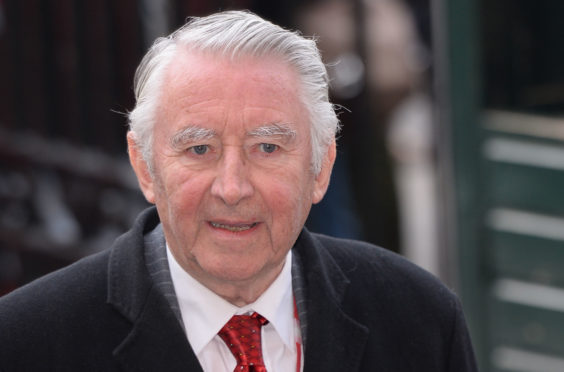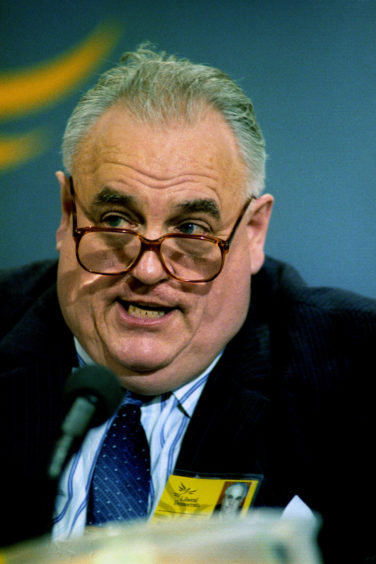Police, prosecutors and political parties “turned a blind eye” to allegations of child sexual abuse connected to Westminster, an investigation has found.
The long-awaited report by the independent inquiry into child sexual abuse (IICSA) found political institutions “significantly failed in their responses to allegations of child sexual abuse”.
It cited as an example the former Liberal leader David Steel, who was criticised for not acting on information that former MP Cyril Smith had abused children.
Lord Steel, who is a former presiding officer of the Scottish Parliament, told the inquiry last year how he failed to pass on allegations against the then MP for Rochdale even though he believed them to be true, because it was “past history”. He subsequently recommended Smith for a knighthood.
“This failure to recognise the risks was an abdication of responsibility, and the fact the offences were non-recent was irrelevant”, the report said.
It added: “Lord Steel should have provided leadership. Instead, he abdicated his responsibility. He looked at Cyril Smith not through the lens of child protection but through the lens of political expediency.
“When attending the inquiry, far from recognising the consequences of his inaction, Lord Steel was completely unrepentant.”
It concluded: “In our view, on a fair and complete reading of the whole of his evidence to the Inquiry, it is clear that Lord Steel assumed from what Cyril Smith told him that he had committed the offences which Private Eye had reported, yet he did nothing about it.”
Lord Steel, who has now resigned, was suspended from the Scottish Lib Dems last March after giving evidence to the inquiry, but was subsequently readmitted to the party.
Scottish Lib Dem leader Willie Rennie, speaking at the time, said the party had “determined after careful consideration, that there are no grounds for action against David Steel”.
A party spokesman told us: “The Scottish Liberal Democrats followed the advice of lawyers and the party’s constitution and decided that there was no action to be taken at that time.
“The independent inquiry was under way with a wider remit. This is an important inquiry with powerful conclusions which all institutions should take seriously and seek to learn from.”
Professor Alexis Jay, who chaired the inquiry, said: “It is clear to see that Westminster institutions have repeatedly failed to deal with allegations of child sexual abuse, from turning a blind eye to actively shielding abusers.
“A consistent pattern emerged of failures to put the welfare of children above political status although we have found no evidence of an organised network of paedophiles within government.
“We hope this report and its recommendations will lead political institutions to prioritise the needs and safety of vulnerable children.”
The report also identified how former prime minister Margaret Thatcher and ex-Conservative party chairman Norman (now Lord) Tebbit were aware of rumours about MP Peter Morrison having “a penchant for small boys” but did nothing about it.
The report said the allegations “should have rung alarm bells in government”.
A consistent pattern emerged of failures to put the welfare of children above political status although we have found no evidence of an organised network of paedophiles within government.
But, instead, “considerations of political embarrassment and the risk to security were paramount, while the activities of an alleged child sexual abuser who held senior positions in government and the Conservative Party were deliberately overlooked, as was the course of public justice”.
Indeed, the inquiry found there was a “consistent culture for years” in the whips’ offices to “protect the image” of their party by “playing down rumours and protecting politicians from gossip or scandal at all costs”.
It meant victims’ interests were often overlooked, with many organisations failing to pass on allegations to police.
The report also found senior diplomat Sir Peter Hayman was the beneficiary of “preferential, differential and unduly deferential treatment” over claims he sent obscene material in the post, following a meeting between his solicitor and the then-director of public prosecutions.
There was also “striking evidence” of how “wealth and social status insulated perpetrators of child sexual abuse” from being brought to justice, as in the case of Tory MP Victor Montagu.
The report stated: “A consistent pattern that has emerged from the evidence we have heard is a failure by almost every institution to put the needs and safety of children who have survived sexual abuse first.”
The report made a number of suggestions including changes to the Honours system, re-examining the policy over posthumous forfeiture of honours – which would strip knighthoods from the likes of disgraced entertainer Jimmy Savile, and creating widespread and well-understood whistleblowing policies for all Westminster institutions.
The Government has also been urged to review its child safeguarding policies, and for all legitimate political parties to have a “comprehensive safeguarding policy” overseen by the watchdog.

